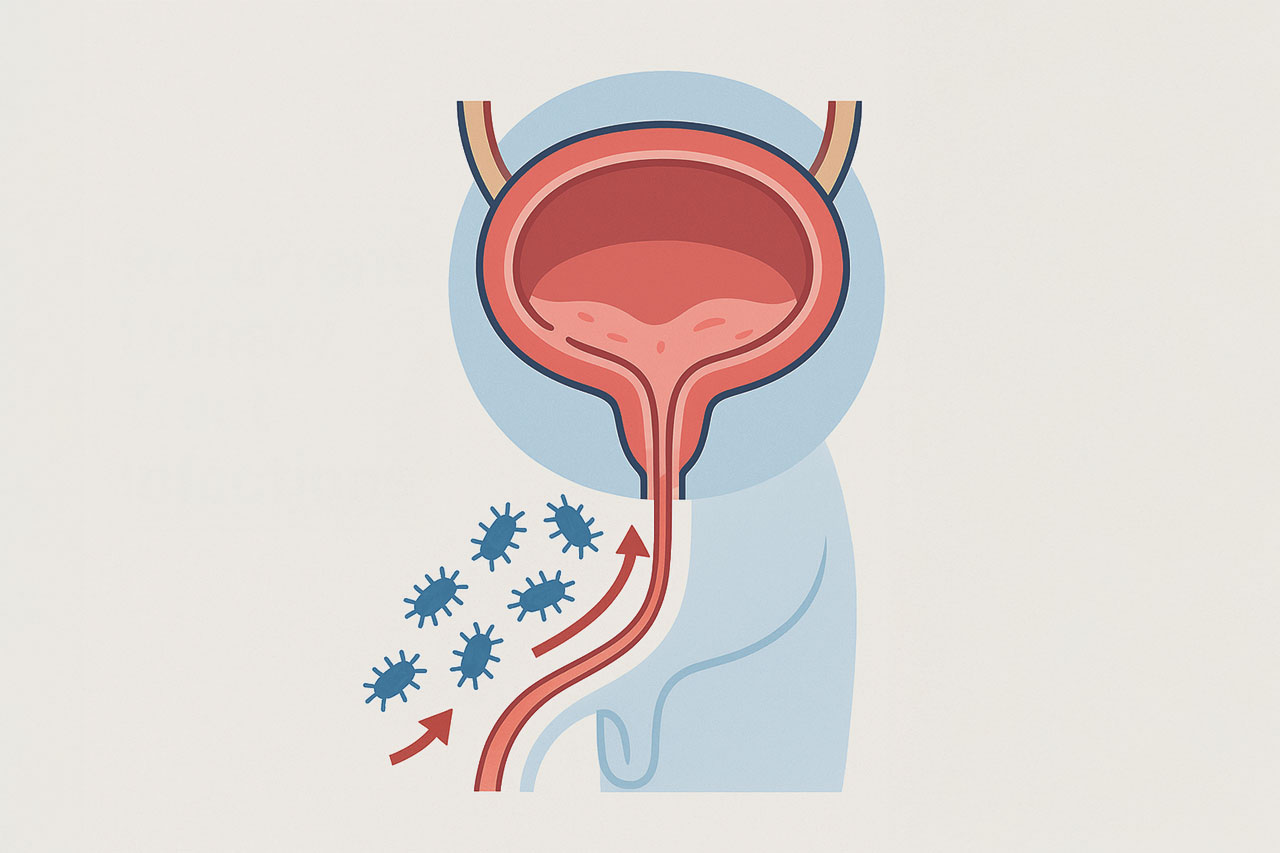Recurrent Urinary Tract Infections
Harley Street, London
Recurrent urinary tract infections (UTIs) are defined as multiple episodes of UTIs within a specific period, such as having at least three UTIs per year or two UTIs within the last six months. These infections can commonly affect the bladder (cystitis) or the kidneys (pyelonephritis) and are more common in women.
Symptoms of recurrent UTIs may include frequent and urgent need to urinate, pain or burning sensation during urination, cloudy or strong-smelling urine, pain in the pelvis, lower abdomen or back and fever and chills in more severe cases.
The diagnosis of recurrent urinary tract infections (rUTIs) involves a comprehensive evaluation. Diagnostic procedures for rUTIs may include urine culture to identify the causative bacteria and determine the appropriate antibiotic treatment. Further tests may include cystoscopy or imaging studies, to aid diagnosis and exclude underlying conditions like kidney stones, outflow obstruction, interstitial cystitis, or urothelial cancer are suspected. A thorough medical history, physical examination, and potentially additional tests are essential to accurately diagnose rUTIs and tailor treatment strategies to address the underlying causes and reduce the frequency of recurrent infections.

Treatment options for recurrent UTIs include diagnostic evaluation to confirm the diagnosis through urine culture and potentially additional tests to identify any underlying causes. Antibiotics are prescribed to treat the current infections and are commonly used as prophylaxis to prevent future episodes although the risk of antibiotic resistance and other side effects needs to be carefully considered. Behavioural modifications involve encouraging increased water intake, good hygiene practices, and avoiding potential triggers like holding urine for too long. Non-antimicrobial prophylaxis strategies like cranberry products or probiotics can help prevent UTI recurrence. In postmenopausal women, vaginal estrogen therapy may be recommended to reduce the risk of recurrent UTIs. In persistent infections other non-microbial treatments can also be considered including:
- Methenamine hippurate (Hiprex) works by converting to formaldehyde in the urine, creating an acidic environment that inhibits bacterial growth in the urinary tract. It is often used as a prophylactic treatment to prevent recurrent UTIs in individuals without urinary tract abnormalities.
- Intravesical treatments involve the administration of medications directly into the bladder. For recurrent UTIs, endovesical instillations of substances like hyaluronic acid or a combination of hyaluronic acid and chondroitin sulfate may be recommended. These treatments aim to restore the protective lining of the bladder and prevent bacterial adherence, particularly in cases where other preventive measures have been ineffective.
- Vaccines can also play a role in preventing recurrent UTIs. While there is ongoing research in this area, vaccines targeting specific pathogens or components of the urinary tract microbiome may help boost the immune response and reduce the risk of recurrent infections. Vaccines against certain strains of bacteria commonly associated with UTIs could potentially provide long-term protection against reinfection.
It is important for individuals with recurrent UTIs to discuss these treatment options with their surgeon to determine the most appropriate approach based on their medical history, risk factors, and response to previous treatments. A personalised treatment plan can help effectively manage recurrent UTIs and improve quality of life.
Mr Raison is available for private urology consultations, treatments, and surgical procedures at The London Clinic, Harley Street.
